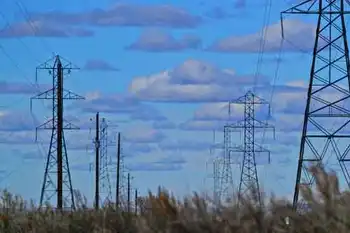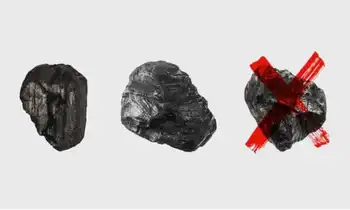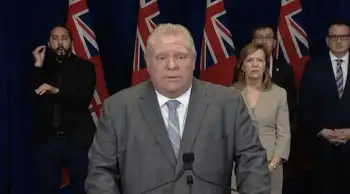Kyoto program 'gutted' by Tories
By Toronto Star
Substation Relay Protection Training
Our customized live online or in‑person group training can be delivered to your staff at your location.

- Live Online
- 12 hours Instructor-led
- Group Training Available
Foreign Affairs, which runs the program, refused repeated requests by the Star for current staffing levels in the Clean Development Mechanism office, compared with staff numbers before 2006, when the federal Tories came to power. But those who have worked with the office said it has dropped to "one or two" people, from about 25 people in the fall of 2005.
"(The Conservative government) started laying them off almost immediately when they got into power last spring. I think by the summer the place was gutted," said Dirk Brinkman, head of a Vancouver-based reforestation company that develops such projects.
He said the office helped its counterparts in developing countries and worked with companies here as well.
The Conservatives have long complained about plans by their Liberal predecessors to invest in "hot air credits" abroad. The Tories also have criticized the idea that Canada could clean up the atmosphere here by funding environmentally sound projects in Russia or South America.
The Kyoto accord allows developed countries to trade emissions credits with other developed countries. It also allows developed nations to fund green projects in developing countries.
Canada's office was set up in 1998 to work on the latter initiative. The Kyoto tool is to help countries like China and India avoid building their economies in the way developed countries have done, with coal-based technologies, said Stewart Elgie, a law professor with the University of Ottawa's Institute of the Environment.
"It's essential that poor countries grow their economies in low-emission ways and the clean development mechanism is the way to achieve that," he said.
The Conservatives came under fire last year for removing all references to climate change projects and the Kyoto accord from the Environment Canada website. The government was also criticized for cancelling funding 15 climate change programs, including the popular One-Tonne Challenge and the EnerGuide home efficiency program. It said the programs did not produce results.
A Tory source told the Star that, while a few projects under the emissions credit banner might have been in the early stages of development when the Conservatives took power, nothing was "ready to go."
"They were pushing for it, but they were not in place," the source said of the projects the office was working on early last year. "I've seen one project that could look like a CDM project, but it wasn't clearly identified as such."
Any request for funding related to such a project was a non-starter in the government's eyes, the source said.
"Clearly, the indication was that if you want government money for that, it will not go ahead." John Drexhage of the Ottawa-based International Institute for Sustainable Development said that so far, the government has only said it will not buy emissions credits directly as a government.
"The government has yet to clarify whether it's going to allow industry to participate in global trading," he said. "I would hope that they not take away that option."
Even so, the government has effectively penalized companies looking to use the credit program to reduce their greenhouse gases by preventing those firms from tapping into the expert assistance. Drexhage said help is also available from private firms.
Brinkman said his reforestation company has up to $100 million in projects under development that would lead to "millions of tonnes of tradable (emissions) credits." The company is developing such projects for companies in countries including Spain and Italy, he said.
At a special committee examining the government's environmental legislation this week, Drexhage raised the case of 45 such projects in Ukraine and Russia. He said the projects have achieved greenhouse gas reductions equalling 93 megatonnes through initiatives focused on energy efficiency and capturing "fugitive emissions" from the oil and gas sectors.
"When it comes to climate change and greenhouse gas emissions, not only do the emissions not have borders, neither do the emissions reductions," he said. "From a global environmental perspective, a tonne of CO2 reduced here is the same as a tonne of CO2 reduced in Brazil or anywhere else."











